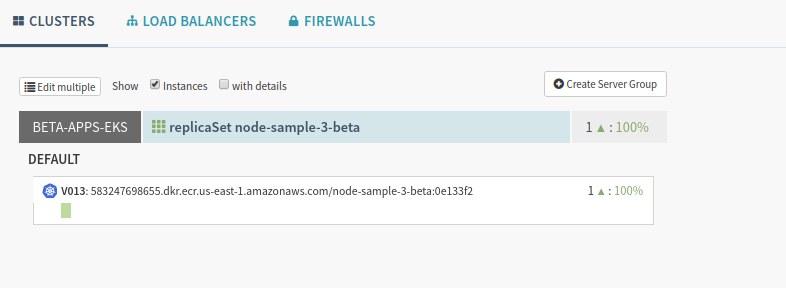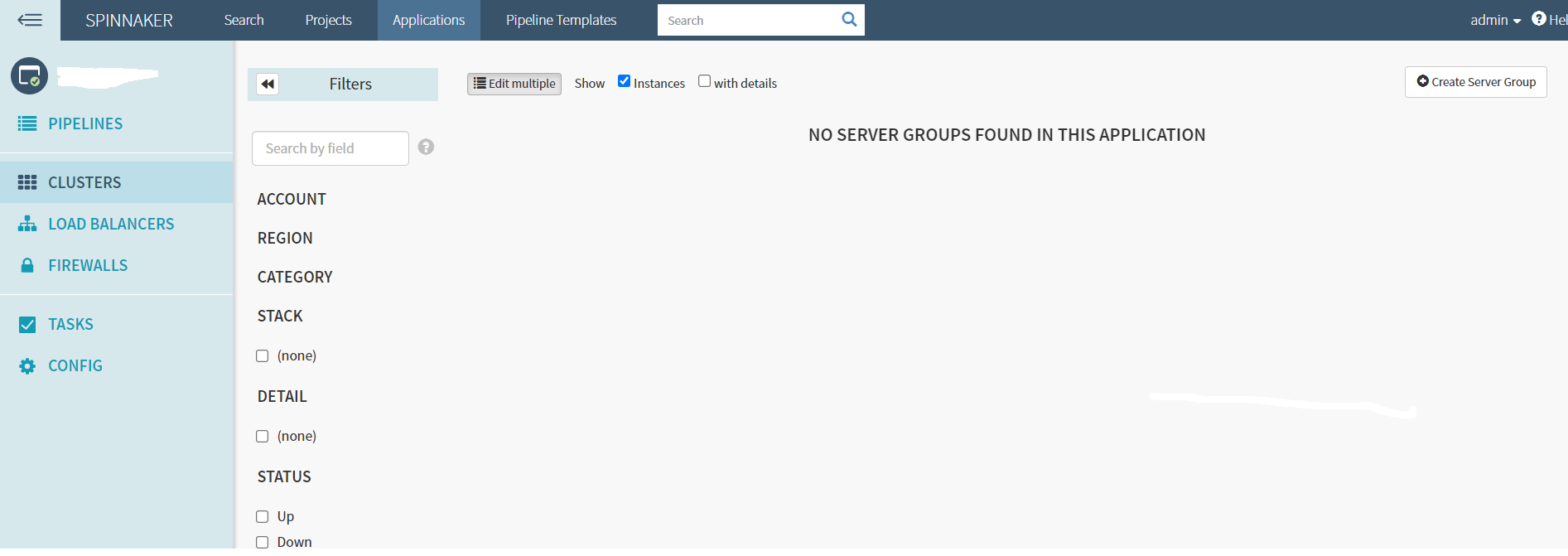spinnaker: Infrastructure > Cluster view doesnt show created server groups in some applications
Issue Summary:
The clusters view shows “NO SERVER GROUPS FOUND IN THIS APPLICATION” in some application even though there are server groups that spinnaker pipeline created. This only happens in some applications, not all. Server group can be seen from pipeline execution details (clicking on details link).
Cloud Provider(s):
Kubernetes V2 Manifest
Environment:
AWS eks via hal
Feature Area (if this issue is UI/UX related, please tag @spinnaker/ui-ux-team):
UI, I think. @spinnaker/ui-ux-team
Additional Details:
Screenshots:
- When it works fine:

- When it doesnt work.

- Though we can access server group from pipeline execution view by clicking on details.
Note that the main view for server group is still empty

Spinnaker has properly applied monikers to launched replicaset in both cases (where it works and where it doesnt): moniker.spinnaker.io/application: node-sample-3-beta moniker.spinnaker.io/cluster: replicaSet node-sample-3-beta
About this issue
- Original URL
- State: closed
- Created 5 years ago
- Comments: 22 (2 by maintainers)
In spinnaker version 1.26.6 same issue facing ,even we delete all namesapces in hal config and redployed, using k8 only. issue was same not able see any clusters and server groups

looks like I spoke too soon. This issue resolved itself for us after we took the following action:
~/.hal/configfile for the affected account~/.hal/configfile for the affected account… resolved by a case of turning it off and on again 😃
After some digging found it’s due to the annotation that gets applied by Spinnaker. Check your Kubernetes objects (Deployments, Services, PODs etc ) for
moniker.spinnaker.io/application=appnameand make sure it’s pointing to the right application. If you are using pipeline templates, check to ensure they are setup correctly as the annotation gets propagated via pipeline templates.